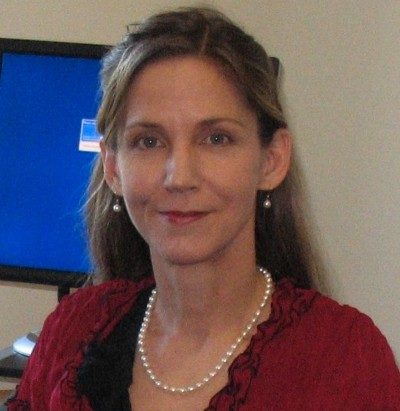A 2009 Lancet study put climate change at the top of the list of health threats this century, but the finding has yet to resonate with public health authorities. A Tasmanian public health specialist aims to change all that. [21 September 2010 | Peter Boyer]
The frog in the simmering pot is one of the enduring metaphors in the talk about how we react to climate change. The story is that the frog sits in the water over a slow heat, blissfully unaware that things are hotting up until it’s too late.

As Dr Erica Bell sees it, the impact of climate change needs to be at the top of our public health agenda.
People who study frogs say this story is an urban myth — that frogs are smarter than that — but it’s a useful analogy for a big problem about how we deal with a world in flux. Most of the changes to our natural world happen in tiny increments, and sitting in the pot it’s easy to miss them.
Public health is a classic example. We know a healthy natural environment is good for us and a damaged one poses risks to our health, but government health agencies, including Tasmania’s, seem to have overlooked “eco-health” issues such as climate change for their to-do list.
They shouldn’t. A 2009 UN report estimated that every year climate change causes over 300,000 deaths and adversely affects 325 million people world-wide. Most victims are poor and live in undeveloped countries, but their problems are ours too, and even on this benign island with its developed economy we’re vulnerable to future climate shifts.
The climate-health nexus is explored in “Climate Code Green”, a campaign by the Australian Medical Students Association featuring a powerful video statement based on a 2009 British finding that climate change is our biggest health threat. The campaign argues that advocating better health also means supporting decisive action to reduce carbon emissions.
A slightly different tack is taken by Dr Erica Bell, a leading advocate for a Tasmanian health system that’s “climate-ready”, able to deal with public health threats from climate change. She’s concerned about the long-term future, but she’s also looking at changes that are already upon us.
Dr Bell, deputy director at the University of Tasmania’s Department of Rural Health, has in recent years been investigating the impact of climate change on health and the role of the health sector in helping people adapt. Her teaching and research program seeks to involve leading climate scientists as well as doctors and health administrators.
She is unequivocal about what she sees as the dangers posed by climate change, and while she believes Tasmanians may escape some of the extremes expected elsewhere, she’s already seeing signs of what lies ahead if we don’t start building government and community resilience.
A long Tasmanian drought ended last year, but the damage it caused to many farming communities isn’t so quickly erased. Dr Bell cites estimates that in the drought years Tasmania led the nation in lost farm income, which has direct causal links to poor rural health.
To her, rural medicine also involves helping people feel a sense of belonging to their community and their wider region: “People build more resilient communities through better interaction with each other and the place in which they live, and having equal access to good health services.”
Dr Bell’s main concern is that in Tasmania and elsewhere, public health leaders have left climate factors out of their planning processes. She wants them to take a holistic approach to climate impact, building it into planning for workplace governance and culture, career development, service delivery, asset management and funding.
Acknowledging the health threat posed by climate, governments are now looking for evidence on which to base policy decisions. Research needs to focus on the health impacts of climate change on rural and remote areas, which are likely to feel the worst effects of climate change on top of having to deal with inequitable health services.
As Dr Bell sees it, Australia urgently needs health service delivery models that meet likely climate challenges, including the particular needs of individual regions. Her position is supported by the publication of her work by the highest ranked international journals in the field.
Engaging with health service providers is central to Dr Bell’s scenario for a climate-ready public health service. Besides being informed about the local impact of climate change, health professionals need practical tools that they can use daily to respond effectively to climate change.
“One of the reasons the nexus between climate change and health has been so slow to arrive in health workforce education and training seems to be the lack of tools for such vocational-level understanding,” she told me. “I focus on developing conceptual frameworks for health policy and practice, with tools and strategies for helping vulnerable populations.”
Dr Bell’s health agenda doesn’t revolve around trying to persuade people that they must reduce carbon emissions. She is focusing instead on getting people to see practical ways of responding to climate change as part of their ordinary jobs.
“What I want to see is an evidence-based population health approach,” she says. “What is happening to climate-vulnerable communities matters, and we have a duty of care to support them in adapting in a climate-changing world. There can be no argument against that.”
• Future opportunities and challenges in managing Tasmania’s forest carbon is the subject of an all-day workshop this Thursday at the Dechaineux Lecture Theatre, School of Arts, Hunter St, Hobart. Email forestcarbonworkshop@gmail.com or call 0405740355 for further information.
